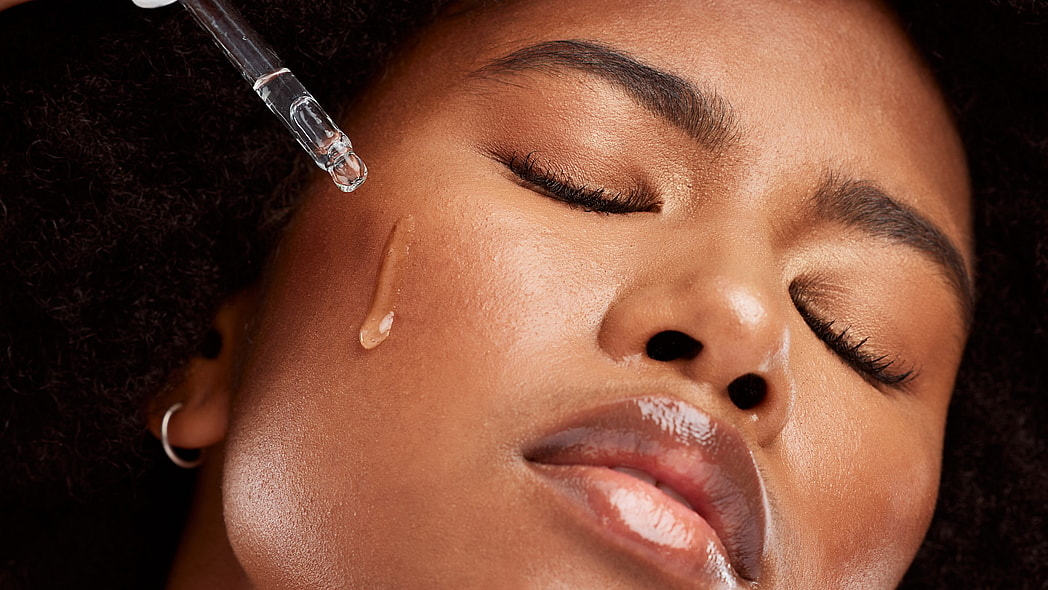Unregulated and unlicensed beauty practices and products, as well as their consequences, are on the rise.
In April, the Centers for Disease Control and Prevention (CDC) launched an investigation into three HIV cases linked to microneedling received at an unlicensed spa in New Mexico. A month later, the CDC launched another investigation, this time into counterfeit Botox, after 15 different people in nine different states reported “harmful reactions.”
Practitioners aren’t the only ones coming under fire. Michelle German, a board-certified physician assistant and medical aesthetician based in Washington, D.C., recently took to her Instagram in a now-expired post to warn her followers about the dangers of at-home chemical peels.
“It’s cringeworthy for me because I know exactly what can happen when we’re doing a chemical peel,” German told theGrio. “It’s literally an acid that is having a reaction on your skin, which is going to cause it to peel.”
She continued, “It’s activating things. It’s almost sort of eating away at the skin, because, again, it is an acid. So the thought of somebody trying to do that at home just baffles me.”
While attempting to do these procedures at home is baffling to experts like German, seeking them out altogether is no surprise. These procedures aren’t just for vain, wealthy women. Microneedling, a minimally invasive procedure, involves making tiny holes in the skin, can stave off aging, but it can also improve many issues, including scarring, hyperpigmentation, and hair loss – something half of all Black women will experience.
“It’s definitely not just for them,” Cheri Frey, a board-certified dermatologist based in Alexandria, Virginia, told theGrio. “I have plenty of patients who have these procedures performed. And it’s not just a woman’s issue, either. I have a lot of men who come in for those procedures.”
However, the risks of getting these services through unlicensed and unregulated pathways, or worse, recklessly trying to attempt them at home, carry unique risks for Black and brown people.
German explained that Black and brown skin tones have melanocytes, which give our skin its complexion. However, melanocytes, she said, are also “helper cells.” Whenever our skin experiences any sort of inflammation or irritation, they flock to the area to help heal the damage.
Recommended Stories
“Which is what we want. We want to be able to heal the area,” German continued. “But when they aggregate an area, that also is causing a dark spot. So it’s like the smallest thing that you do at home that you think may be nothing can cause such a big blow-up because of how your body’s just trying to heal that area.”
Frey said everything from microneedling to fillers to lasers is risky because the top layer of skin is broken.
“Anytime we’re piercing that top layer of skin, we’re going beyond what we call the ‘stratum corneum,’” she explained, adding, “We have to be very cautious about who we’re allowing in because that stratum corneum does serve as a barrier to our blood vessel system and the deeper tissues.”
Frey said contaminated equipment can lead to a host of issues, including damage, infection, and viruses like staph, hepatitis, and, in rare cases, HIV.
In many cases, individuals may be unaware that they are working with an inexperienced or unlicensed practitioner. Both Frey and German encourage people to read reviews of new practitioners and ask to see their licenses if they are not clearly displayed. Red flags could include bad reviews, weirdly worded reviews, and the cleanliness of their facility. German added that it’s a major red flag when a practitioner doesn’t have a protocol for adverse effects.
“Everybody’s skin is different. People react differently. There are side effects that can happen and whatever provider you’re going to, they should know how to manage the side effects,” she said.
In other cases, whether it’s a random gadget found online or a lash tech with a trendy website and no qualifications, some may be attempting to seek out the most cost-effective approach. Items like inexpensive hair removal lasers available online come with steep warnings for those with darker skin tones.
“There can be a lot of damage done with lasers,” Frey said. “Not all lasers are safe in a variety of skin tones. So, if you’re going to get a laser procedure, not just laser hair removal, but more for improvement in tone and texture and scarring, if you’re looking for rejuvenation, then you have to be extremely careful about who you go to.”
She continued, “They need to have knowledge of the right laser setting.”
Outside of skincare, things like hair dying or relaxers are also cautioned against. German said a lot of science and chemistry can go into treatments like those.
“I would just rather go to somebody who has studied it and knows versus trying to play around with it at home,” she said.
German and Frey both urged individuals to do their research before they book or buy. Beyond research, individuals can also adopt better practices now to potentially mitigate the need later on in life.
“I always tell people skincare starts at home,” German said. “You can do various products that get yourself consistent on a regimen that will have such benefits for you.”
This could include properly cleansing the skin and hair and adequately protecting it from its environment.
There are always other options outside of, you know just trying to take like this sort of short-cut way,” German continued. “If people wore sunscreen every single day, they would love themselves 20 years from now.”










